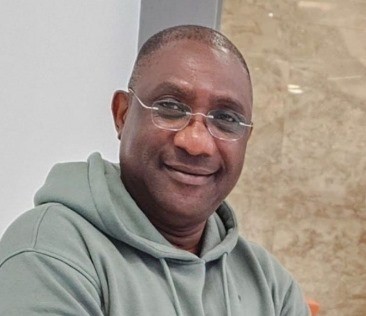By Sammy CRABBE
Introduction – Cities are meant to grow
No great city remains confined to its original footprint. Dynamic urban centres evolve in response to ambition, opportunity, and changing needs. Though the One Square Mile began as a dense, innovation-focused enclave, it was always designed with scalability in mind.
Phase Five outlines how the city will expand – outward into new neighbourhoods, upward into new industries, and forward into the future. This phase is not just about physical growth but about extending the city’s values: sustainability, inclusivity, and smart design.
Designing growth with purpose
Expansion will follow a deliberate Urban Growth Framework, developed early in the planning process to avoid disorderly sprawl. Growth will be infrastructure-led – no area will open for development until roads, utilities, public transport, emergency services, and fibre-optic networks are in place.
All new districts must be walkable and mixed-use, integrating residential, commercial, educational, and recreational functions. Green space and climate resilience will be mandatory features, ensuring that every expansion zone contributes to a sustainable urban ecosystem.
This disciplined approach ensures that growth enhances the original vision rather than diluting it. Expansion will be connected, efficient, and tailored to the needs of both residents and industry.
New specialized districts – Driving economic diversification
Rather than duplicating a standard urban model, the city will grow through thematic districts, each contributing distinct economic value and cultural identity.
The Fintech Park will welcome blockchain startups, payment platforms, and DeFi innovators. Co-located with regulators and training centres, it will become a beacon for digital finance in West Africa.
The HealthTech Village will build on the Smart Hospital’s success, focusing on telemedicine, medical AI, pharmaceutical production, and health device innovation. Researchers, clinicians, and entrepreneurs will collaborate in this medically advanced ecosystem.
The Green Energy Hub will promote climate technology, solar innovation, electric mobility, and sustainable construction. With support from global partners, it will position Ghana as a continental leader in green industrialization.
Each district will not only grow the city’s physical footprint but will deepen its economic complexity, insulating it from future shocks and anchoring long-term prosperity.
Extending residential and community infrastructure
Residential growth will accompany each economic district, ensuring new neighbourhoods form as complete communities, not isolated dormitories. Each expansion zone will include a mix of affordable and premium housing, digital schools, clinics, parks, and civic centres. All developments will meet smart infrastructure standards – solar-ready homes, EV charging, fibre broadband, and automated waste systems.
Importantly, communities will be designed with resident input. Through digital planning tools, citizens will help shape their own neighbourhoods, reinforcing the city’s commitment to participatory design. This will ensure that new districts are socially vibrant and not merely functional.
Scaling governance – Building institutional capacity
As the city expands, its governance systems must mature in parallel. The One Square Mile Authority will decentralize operations through district offices, each managing permits, security, sanitation, and local services. These offices will report to a central city administration while maintaining community responsiveness.
The City Council will grow to include new districts, preserving local representation. Simultaneously, digital governance systems – including service portals, e-voting platforms, and real-time dashboards – will scale to serve the growing population without losing efficiency. This institutional evolution will ensure that good governance expands with the city, maintaining trust, transparency, and service delivery as the urban footprint enlarges.
Taking the model national and regional
The One Square Mile is not just a physical place – it’s a model. The strategies, technologies, and partnerships piloted here can be adapted elsewhere. The Authority could evolve into a national consultancy, guiding the rollout of “Innovation Zones” in other parts of Ghana and across West Africa.
By codifying planning methods, infrastructure templates, and policy tools, the project can help other cities leapfrog traditional development models and embrace smart, scalable urbanization. In this way, One Square Mile becomes not just a city but a catalyst for national transformation.
Sustaining the vision – Long-term investment strategies
Scalable growth requires sustainable funding. A dedicated One Square Mile Growth Fund will be created, drawing from land leases, service fees, public-private partnerships, innovation hub revenues, and government grants. This fund will finance infrastructure expansion, community development, and innovation programs in future districts.
Investment prospectuses will be developed early for each district, presenting clear returns to attract private capital, diaspora investors, and development finance institutions. Strategic partnerships will distribute risk and accelerate timelines. In this way, the project will retain financial independence while scaling its impact.
Conclusion – Building beyond boundaries
The One Square Mile started as a bold experiment in building Africa’s smartest square mile. But its real power lies in its potential to scale – physically, economically, institutionally, and ideologically.
This phase marks the beginning of that expansion. By applying smart planning, disciplined growth, and inclusive values, the project will grow far beyond its original borders.
It will stretch not just across Accra but across the national imagination, becoming a blueprint for African cities of the future. Here, expansion is not just measured in square kilometers. It is measured in opportunity, resilience, and the ability to reimagine what cities can be – not just today, but for generations to come.
>>>the writer is a PhD researcher specializing in blockchains and decentralized finance at the University of Bradford. He holds an MBA in International Marketing and a post-graduate certificate is research from the International University of Monaco. Sammy was the first president of the Ghana Business Outsourcing Association and developed Africa’s first data entry operation and Ghana’s first medical transcription company. He can be reached via [email protected]










